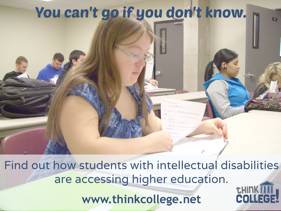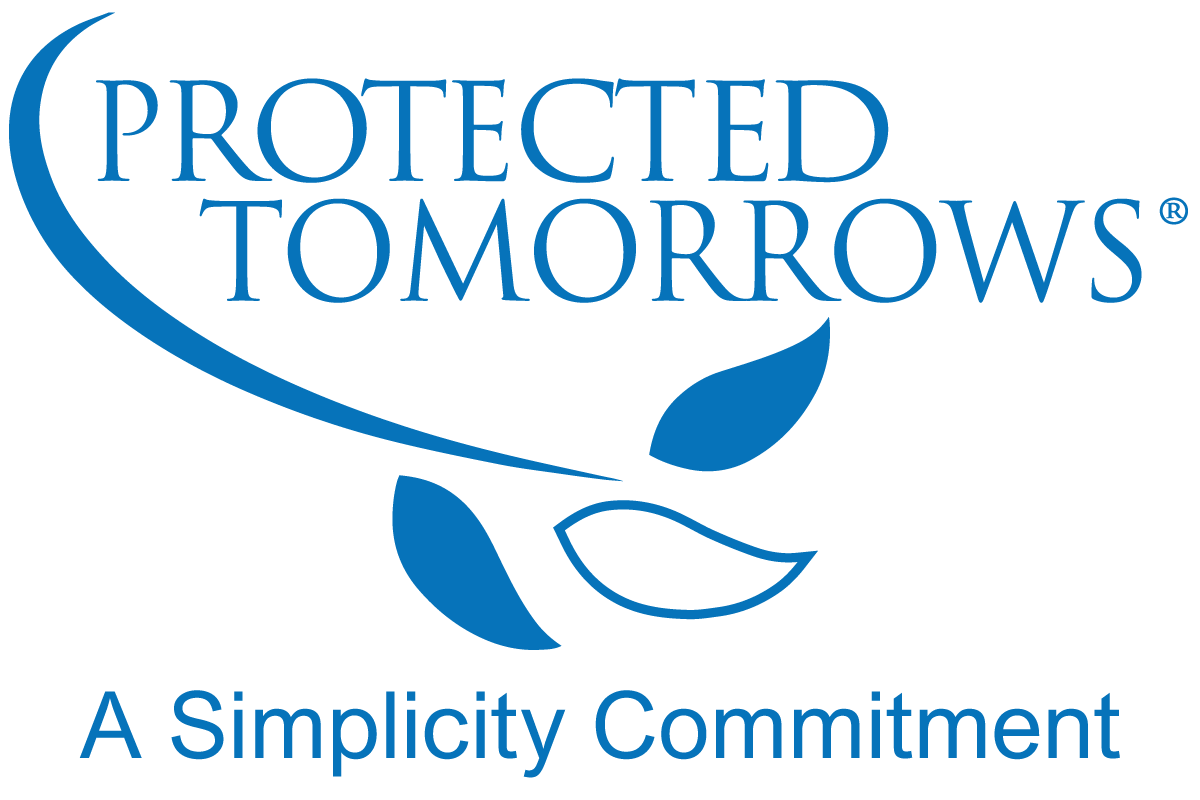College is an Option!
By Cate Weir, Project Coordinator for Think College at the Institute for Community Inclusion, University of Massachusetts Boston
For children with disabilities, especially those with more significant needs, such as intellectual disabilities or autism, going to college after high school may not seem possible. But in the past twenty years or so, this has been changing. There are now a growing number of options for students with intellectual and other developmental disabilities to go to college, specific provisions supporting college access for individuals with intellectual disabilities in a federal law and unprecedented access to some forms of federal financial aid. As families plan for the future with their children with disabilities, it is important to know that college can be in that future, so that educational and financial choices that families make can support that outcome.
Think College helps families, students and professionals learn more about how college IS an option. It is a national organization dedicated to developing, expanding, and improving inclusive higher education options for people with intellectual disability. With a commitment to equity and excellence, Think College supports evidence-based and student centered research and practice by generating and sharing knowledge, guiding institutional change, informing public policy, and engaging with students, professionals and families.
For the last two decades or so, options for students with intellectual disabilities to attend college have been growing. In the 1980s, there were a handful of colleges offering special programs on their campuses. Currently, there are over 220 college programs for students with intellectual disabilities, with new programs frequently being established. What was only a pipe dream 20 years ago is now more of a reality than ever. The growth of available options is exciting, yet there are still many areas in the country that do not have available programs. In these areas, students and their parents need to be resourceful to create the opportunities for postsecondary education that they desire. With forethought and planning, students with ID can have the college experience they want, either in an established program, or perhaps working with partners to create opportunities where there are none.
Students and parents can find out what is currently available by reviewing the programs in the online College Search (http://www.thinkcollege.net/component/programsdatabase/?view=programsdatabase&Itemid=339) on the Think College website (www.thinkcollege.net ) Perhaps there are some options that seem like a good match. It may also be that there are no programs that are exactly right, or perhaps there are no options nearby. Even in those cases, it is still possible to have college attendance as a transition goal, and to work with the educational team to locate resources that may make taking college courses possible. If going to college is a dream for the student, it is important to plan for that, and to take steps during transition that will make college attendance more likely.
Adding the prospect of postsecondary education to transition planning can be overwhelming. Parents report that when they bring it up they are told that they are being unrealistic. Often, transition professionals are not aware of the current practices being implemented around the country and do not understand there is new legislation that supports students with ID to access higher education. Parents may encounter people who will question the goal of postsecondary education for their child. They must be confident in the legitimacy of the goal for their child to become an adult learner. Learning, thinking and growing are lifelong endeavors.
 Resources for Parents to Learn More
Resources for Parents to Learn More
So — the first step is to KNOW THAT IT IS POSSIBLE! But then families need more information — how does it work? What should we be doing to prepare? To that end, Think College has created an online learning module just for families. This module provides information to families who want to learn more about the possibilities of their sons or daughters with intellectual disabilities attending college. The module describes college options, identifies how college is different from high school, discusses the changing role of families once students are in college, and offers strategies for families and students on how they may navigate those differences. The module also outlines ways to prepare for college and how to choose a college that will be a good fit. Options for how to pay for college will be discussed as well. The module, and lots of other resources, can be found at www.thinkcollege.net. Go to Think College LEARN to explore this module. http://www.thinkcollege.net/think-college-learn
Follow Think College on Facebook! We regularly post articles that describe what is going on around the country, provide links to good resources, and share up to date information related to postsecondary education. https://www.facebook.com/thinkcollege
Related Resources

Tips for Traveling: A Checklist for Parents of Children with Special Needs
read article

What’s in the News
read article
 search
search 





